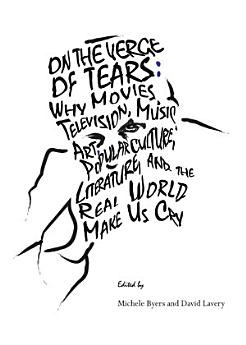On the Verge of Tears: Why the Movies, Television, Music, Art, Popular Culture, Literature, and the Real World Make Us Cry
About this ebook
On the Verge of Tears is not the first book to think about crying. Tom Lutz’s Crying: The Natural & Cultural History of Tears, Judith Kay Nelson’s Seeing Through Tears: Crying and Attachment, Peter Schwenger’s The Tears of Things: Melancholy and Physical Objects, and Henry Jenkins’ The Wow Climax: Tracing the Emotional Impact of Popular Culture also offer forays into this familiar, if not always entirely comfortable, emotional space. This book differs markedly from each of these others, however. As a collection of essay by diverse hands, its point of view is multi-vocal. It is not a history of tears (as is Lutz’s superb book); nor is its approach psychological/sociological (as is Nelson’s). It does not limit itself to very contemporary popular culture (as does Jenkins’ book) or material culture (as does Schwenger’s study).
What On the Verge of Tears offers are personal, cultural, and political ruminations on the tears we shed in our daily engagements with the world and its artifacts. The essays found within are often deeply personal, but also have broad implications for everyday life. The authors included here contemplate how and why art, music, film, literature, theatre, theory, and material artifacts make us weep. They consider the risks of tears in public and private spaces; the way tears implicate us in tragedy, comedy, and horror. On the Verge of Tears does not offer a unified theory of crying, but, instead, invites us to imagine tears as a multi-vocal language we can all, in some manner, understand.
About the author
David Lavery is Professor of English at Middle Tennessee State University, USA, and the author/editor/co-editor of numerous essays and over twenty books, including Joss Whedon: Conversations (University Press of Mississippi) and volumes on such television series as Twin Peaks, The X-Files, Buffy the Vampire Slayer, The Sopranos, Lost, Deadwood, Seinfeld, My So-Called Life, Heroes, and Battlestar Galactica. He co-edits the e-journal Slayage: The Online International Journal of Buffy Studies and is one of the founding editors of Critical Studies in Television: Scholarly Studies of Small Screen Fictions. He has lectured around the world on the subject of television.






